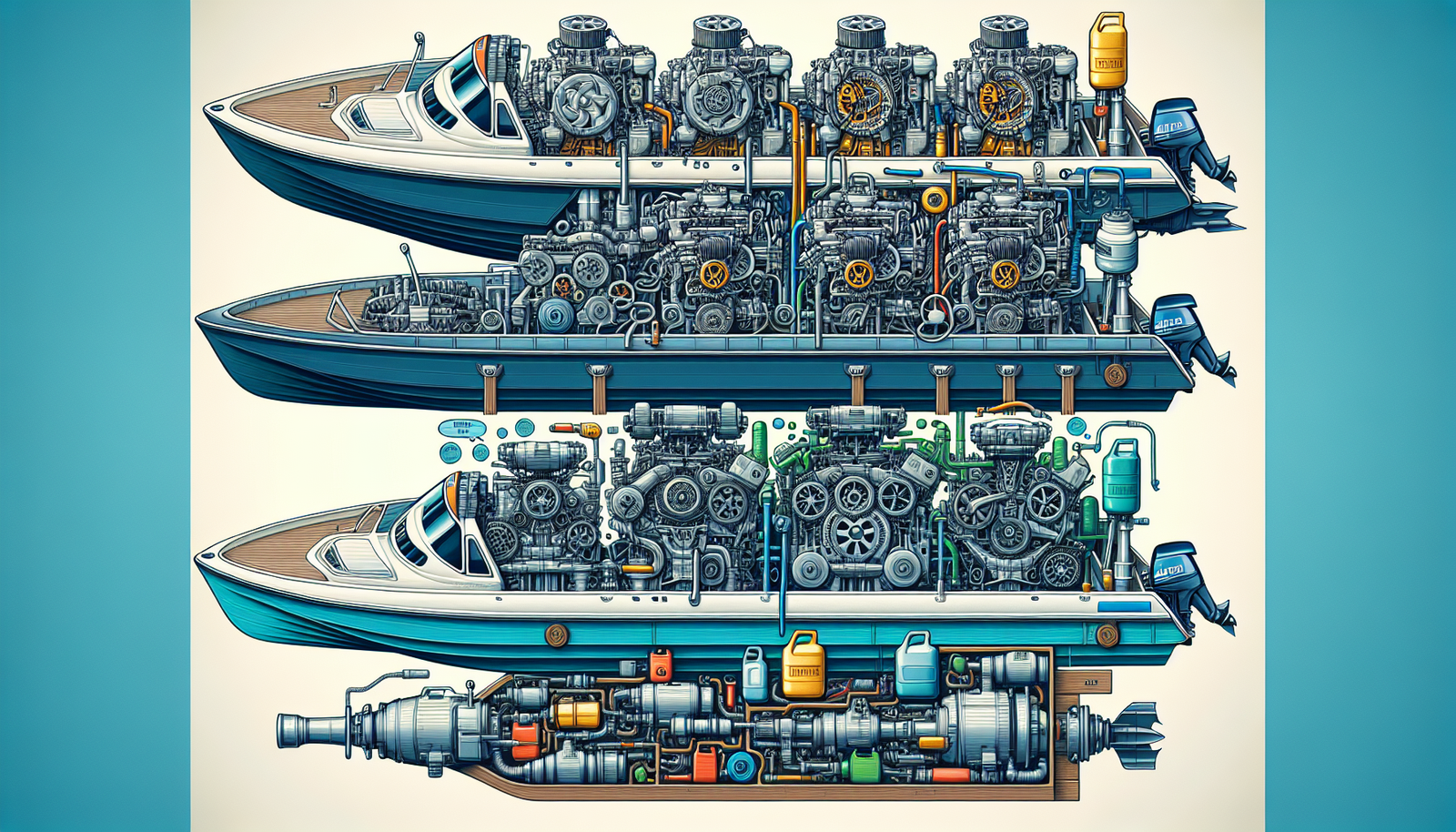Picture yourself setting sail on a perfect boating day. The sun is high, the wind is just right, and your boat’s engine is purring like a satisfied cat. But have you ever considered how much the type of fuel you use can impact your boat’s performance? In this enlightening article, you’ll discover the significant effects different fuel types can have on your maritime vessel’s engine performance. Don’t miss the chance to glean crucial knowledge to boost your boating experience and keep your craft shipshape for years to come.
Understanding Different Types of Boat Engine Fuels
When choosing a boat, one critical factor to consider is the engine fuel type. Over time, this choice significantly impacts the performance, maintenance, and overall costs of your vessel. Understanding the variety of available fuel types can help ensure that you’re making a well-informed decision. Let’s explore some common types of boat engine fuels: Gasoline, Diesel, Natural Gas, and Electric Power.
Gasoline
A commonly used fuel in recreational boats, gasoline, is a high-energy, spark-ignited fuel. Being quite readily available, high octane gasoline offers an excellent power-to-weight ratio, making it an ideal choice for a variety of vessels. Despite its higher flammability, gasoline’s performance and availability keep it in high demand in the boating world.
Diesel
Diesel fuel, while more often used in larger commercial vessels and yachts, also offers some distinct advantages. The fuel is renowned for its high energy density and efficient consumption, leading to longer range capabilities. Though diesel engines typically weigh more and are more expensive than their gasoline counterparts, their durability, safety, and fuel efficiency often make them a worthwhile investment.
Natural Gas
Natural gas is a cleaner-burning alternative to more traditional boat fuel types and can be used in the form of compressed natural gas (CNG) or Liquefied Petroleum Gas (LPG). Natural gas fuels are generally less dense than gasoline or diesel, resulting in less energy output per unit volume. However, this disadvantage can be offset by lower emissions and potentially lower fuel costs.
Electric Power
Electric power is a growing trend in the boating industry, with electric boats boasting silent operation, inexpensive “fuel,” and zero emissions. Electric motors draw their power from batteries, which can be recharged through a generator, shore power, or solar panels. While currently limited by factors like battery capacity, charging infrastructure, and initial investment costs, electric power presents a promising eco-friendly alternative to traditional fuels.
Basics of Boat Engine Performance
Selecting the proper fuel type is a significant first step towards optimal boat engine performance. Nonetheless, it’s essential also to understand the underlying factors impacting engine performance — namely, engine power, fuel efficiency, and engine longevity.
Engine Power and Acceleration
The engine’s power directly affects its ability to move your boat and accelerate. This is of particular importance for speedboats or other vessels where high power is crucial. More energy-dense fuels, like gasoline and diesel, generally offer better power and acceleration capabilities.
Fuel Efficiency
Fuel efficiency is a measure of how much energy is derived from a unit of fuel. Highly efficient engines can travel further while burning less fuel, making them often cost-effective options in the long run. Diesel engines, for instance, have notably high fuel efficiency.
Engine Longevity and Maintenance
The lifespan of your boat’s engine and how much maintenance it requires are important considerations, as these can influence the overall cost as well as usability. Diesel engines tend to last longer than gasoline engines and may often require less maintenance, while electric engines offer the benefit of fewer moving parts, meaning potentially fewer points of failure.
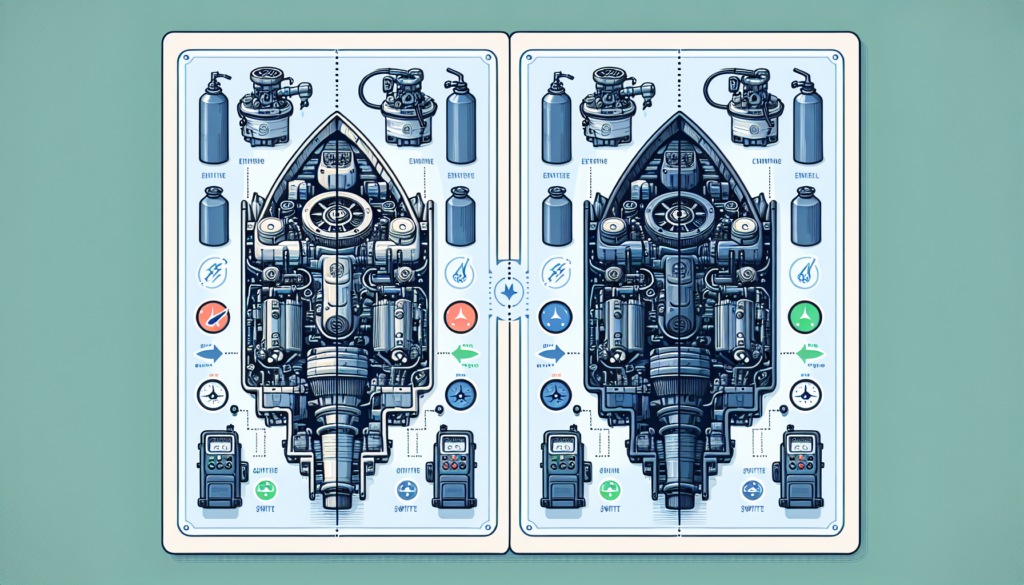
Gasoline and Boat Engine Performance
Understanding the impact of gasoline on engine performance is vital for boaters considering this fuel type. The energy content, performance levels, and even the quality of the gasoline all play a role.
Energy Content of Gasoline
Gasoline contains a substantial amount of energy per unit of volume — around 114,000 BTUs per gallon. Given its high energy content, gasoline can produce excellent engine power and acceleration.
Gasoline Engine Performance
Gasoline engines are generally known for their high-performance capabilities, thanks in part to their fantastic power-to-weight ratios. However, they tend to be less fuel-efficient than diesel engines and may require more frequent servicing.
Impact of Gasoline Quality on Performance
The quality of the gasoline you use can significantly impact engine performance. High-quality, clean gasoline can enhance engine power and lead to smoother operation. Conversely, low-quality gasoline may result in engine knocking, reduced power, and could eventually damage the engine.
Diesel and Boat Engine Performance
Diesel engines, typically found in larger wind boats and yachts, also have unique performance characteristics heavily influenced by the fuel’s energy content and quality.
Energy Content of Diesel
Diesel fuel commands an even higher energy content than gasoline, offering around 130,500 BTUs per gallon. Its excellent energy output and impressive fuel economy mean you can go further on a tank of diesel than with gasoline.
Diesel Engine Performance
Known for their strength and durability, diesel engines are exceptionally fuel-efficient and provide a high degree of torque – an important quality when powering heavier vessels or yachts.
Impact of Diesel Quality on Performance
Like gasoline, the quality of diesel can impact engine performance. Contaminants like water and dirt can seriously impair the fuel injectors, leading to poor performance and potentially severe engine damage.
Noise and Vibration in Diesel Engines
One downside of diesel engines commonly mentioned is their noise and vibration levels. While modern diesel engines have made significant strides in reducing noise, they still tend to operate with more sound and vibration compared to gasoline engines, which may detract from the boating experience for some.
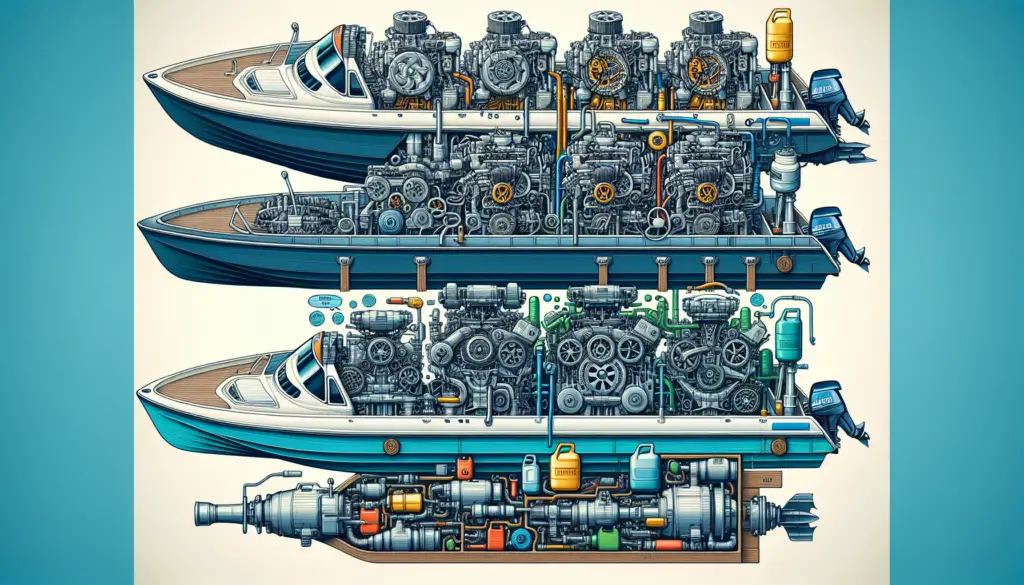
Natural Gas and Boat Engine Performance
Natural gas is a less common, yet eco-friendlier, fuel option. Its impact on boat engine performance offers a mixture of benefits and drawbacks.
Energy Content of Natural Gas
Natural gas has a lower energy content compared to gasoline and diesel. This usually results in less power and might restrict the boating range unless the vessel is equipped with larger fuel storage.
Natural Gas Engine Performance
Natural gas engines operate with virtually no soot or sulfur emissions, creating an eco-friendly option for boaters. They can also potentially save on fuel costs, depending on gas prices and availability.
Impact of Natural Gas Quality on Performance
The quality of the natural gas used in these engines, usually delivered as CNG or LPG, can also affect performance. Low-quality natural gas can lead to engine knocking and can hinder overall performance.
Electric Power and Boat Engine Performance
Electric power is an innovative alternative to traditional boat fuels. As technology improves, electric-powered boats are becoming more feasible and much more efficient.
Energy Efficiency of Electric Power
Electric power is incredibly efficient. Almost all electric power is converted into propulsion, meaning less wasted energy. This results in excellent fuel efficiency and lower operating costs over time.
Electric Engine Performance
Electric engines offer near-silent operation and minimal vibrations, providing a quiet and smooth boating experience. However, these engines are currently limited by the energy storage capacity of their onboard batteries.
Impact of Battery Life on Performance
Battery life and charging speed are critical factors for electric boat engines. They directly influence the boat’s range and downtime. Improvements in battery technology are making electric boats more practical, but currently, these engines are best suited for shorter trips closer to shore.
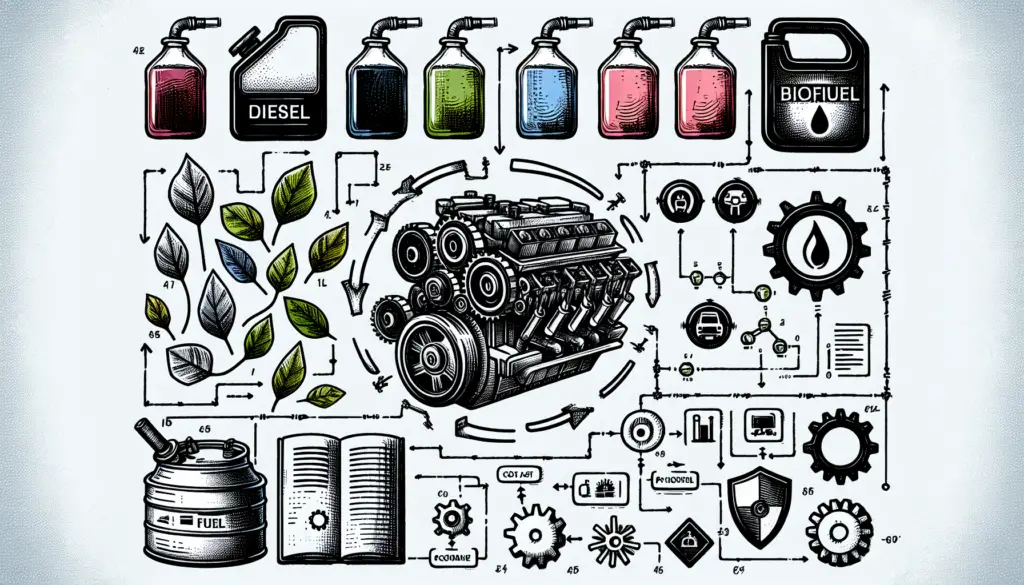
Comparative Analysis of Different Fuel Types
Doing a comparative analysis of different fuel types can help you make a more informed decision about the best fuel for your boating needs.
Fuel Cost Efficiency
Gasoline and natural gas can be less expensive upfront but may incur higher costs in the long run due to lower fuel efficiency and greater emissions. Diesel, though higher in initial costs, tends to be more fuel-efficient, potentially saving money over time. Electric power has the highest initial costs but can lead to significant savings in “fuel” costs over time.
Impact on Engine Lifespan
Traditionally powered boat engines tend to have shorter lifespans than electric engines due to their increased number of moving parts and susceptibility to damage from poor quality or contaminated fuel.
Performance Characteristics
Gasoline and diesel typically offer better performance characteristics, such as power and torque, than natural gas. Electric engines, while quieter and cleaner, are currently limited in terms of range and speed but are consistently improving with the advancements in battery technology and infrastructure.
Environmental Impacts of Different Fuel Types
Considering the environmental impact of different boat fuels is crucial given the increasing awareness and urgency around protecting the Earth’s natural resources.
Carbon Footprint and Emissions
Gasoline and diesel engines are responsible for considerable carbon emissions, contributing to global climate change. Natural gas fuels emit less carbon and harmful pollutants, representing a cleaner option. Electric power, meanwhile, boasts zero emissions at the point of use.
Impact on Marine Life
Fuel spills and emissions from traditional boat engines can harm marine life. Electric power, with its zero emissions and quiet operation, is arguably the most eco-friendly choice.
Long term sustainability
Using natural resources like oil for fuel is not sustainable in the long run, and resources will eventually deplete. On the other hand, electric power presents a more sustainable option that can be generated from renewable sources such as solar and wind.
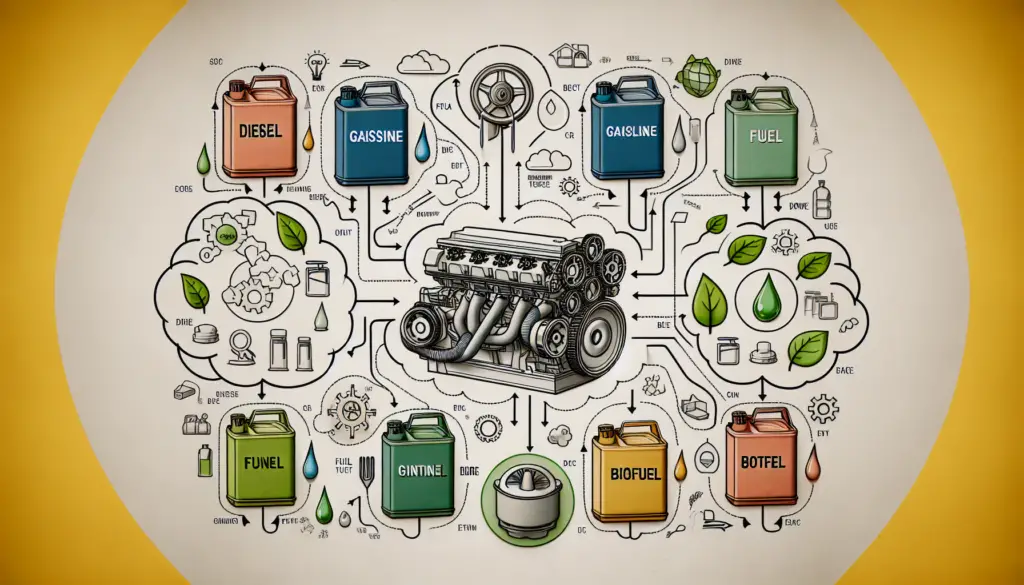
Role of Fuel Quality in Engine Performance
Fuel quality plays a critical role in engine performance and its longevity, and is often overlooked.
Fuel Purity
Pure, contaminant-free fuel delivers the best performance. Water, debris, or other impurities in the fuel can cause problems with the engine, leading to decreased power output and potential engine damage.
Additives
Certain fuel additives can help improve fuel efficiency, engine power, and longevity. Some additives clean the fuel system, while others enhance fuel stability.
Impact of Contaminated Fuels
Contaminated fuel can wreak havoc on an engine, causing issues such as faulty performance, decreased efficiency, and serious engine damage that could remain even after the contaminated fuel is replaced with clean fuel.
Future of Boat Engine Fuels
The future of boat engine fuels looks set to continue evolving as improved technology, emerging fuels, and regulatory changes come into play.
Emerging Fuels
Biofuels and hydrogen fuel cells represent exciting developments in the boat fuel sector, with the potential to provide cleaner, more sustainable energy sources.
Advances in Engine Technology
Improved fuel injection systems, engine designs, and better-performing batteries will continue to enhance engine performance, efficiency, and lifespan.
Impact of Regulations and Policies
Eco-friendly regulations and policies will likely direct the future of boat engine fuels. Moves towards reducing carbon emissions and protecting marine life will encourage the development and adoption of cleaner, more sustainable boat fuels.
In conclusion, understanding the different types of boat engine fuels and their impacts on engine performance, environmental effects, and future developments can guide you in making a more knowledgeable decision when choosing a boat. Whether it’s gasoline, diesel, natural gas, or electric power, each fuel type comes with its own set of qualities and impacts — understanding these can significantly enhance your boating experience.

